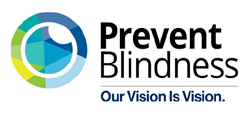
Prevent Blindness offers new resources to raise awareness and provide education for patients, care partners and healthcare service professionals, on mental wellness and vision loss.
“As a patient advocacy organization, we’ve heard for many years from our constituents that one of the biggest challenges of vision loss is how deeply it impacts mental health,”- Julie Grutzmacher, director of patient advocacy and population health initiatives at Prevent Blindness.
CHICAGO (PRWEB)
June 07, 2023
Because individuals with vision loss can experience a higher prevalence of depression, anxiety and other mental health issues as compared to their sighted peers, Prevent Blindness, the nation’s leading nonprofit eye health and safety organization, has engaged experts from around the country to raise awareness, provide education and offer newly developed resources for patients, care partners and healthcare service professionals.
The second day of the upcoming 2023 Prevent Blindness Focus on Eye Health Summit, July 13, will be dedicated to presentations and forums addressing mental health and vision. Keynote speaker Julian Eaton, BSc, MSc, MBBS, MRCPsych, Mental Health Director, CBM Global, Assistant Professor, London School of Hygiene and Tropical Medicine, will kick off the day with his presentation, “Innovative Mental Health Approaches,” followed by discussions on “The Public Health Connection Between Mental Wellness and Vision” and “Policy Opportunities and Obstacles Around Vision and Mental Wellness.” Registration for the summit is now available and free to all attendees.
According to a recent study from the Centers for Disease Control and Prevention (CDC), one in four adults with vision loss reported anxiety or depression. Younger adults with vision loss had almost five times the risk of serious anxiety or depression compared to adults 65 and older.
“As a patient advocacy organization, we’ve heard for many years from our constituents that one of the biggest challenges of vision loss is how deeply it impacts mental health,” said Julie Grutzmacher, director of patient advocacy and population health initiatives at Prevent Blindness. “Working together with patients, their families and healthcare professionals, we are targeting specific areas for improvement and creating strategies to bring support for those whose mental health is significantly affected from vision impairments.”
Prevent Blindness recently convened an all-volunteer Mental Health Task Force, consisting of professionals from a variety of fields, including ophthalmology, optometry, social work and clinical psychology, as well as patients experiencing vision loss. The group created the Vision Loss and Mental Health: Key Takeaways from an Interprofessional Task Force issue brief, and collectively identified opportunities to promote process improvement and advocacy in:
- vision rehabilitation,
- resource development and dissemination,
- training for providers (eye care, primary care and mental health),
- developing an integrated eye care model.
The issue brief is intended for policy makers, providers, professionals and program personnel. Funding support for the promotion and dissemination of the mental health issue brief has been provided by Horizon Therapeutics.
As a next step, Prevent Blindness is working with the Task Force to develop training modules geared towards mental health providers.
A new episode in the Prevent Blindness Focus on Eye Health Expert Series, “Vision Impairment and Mental Wellness” is now available. Dr. Connie Hills, psychologist, consultant and speaker, shares her experience of vision loss from age-related macular degeneration (AMD), and her recommendations on how professionals and patients should work together to improve mental health outcomes. Dr. Hills also discusses her participation in the Prevent Blindness ASPECT Patient Engagement Program. The program is designed to empower individuals to be engaged in their eye health.
Through the free Living Well with Low Vision resource, Prevent Blindness offers the “Vision Loss and Mental Wellness” webpage. The site provides detailed steps to support mental health, and a listing of mental health services from a variety of organizations.
For free information on general eye health, please visit PreventBlindness.org. For a patient guide, low vision resource directories and the latest news on low vision rehabilitation, research and developments in the treatment of eye disease, and a wide range of other topics, visit LowVision.PreventBlindness.org.
About Prevent Blindness
Founded in 1908, Prevent Blindness is the nation’s leading volunteer eye health and safety organization dedicated to fighting blindness and saving sight. Focused on promoting a continuum of vision care, Prevent Blindness touches the lives of millions of people each year through public and professional education, advocacy, certified vision screening and training, community and patient service programs and research. These services are made possible through the generous support of the American public. Together with a network of affiliates, Prevent Blindness is committed to eliminating preventable blindness in America. For more information, visit us at PreventBlindness.org, and follow us on Facebook, Twitter, Instagram, LinkedIn and YouTube.
Share article on social media or email:

